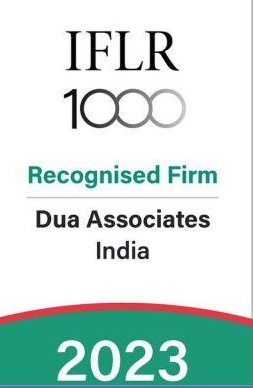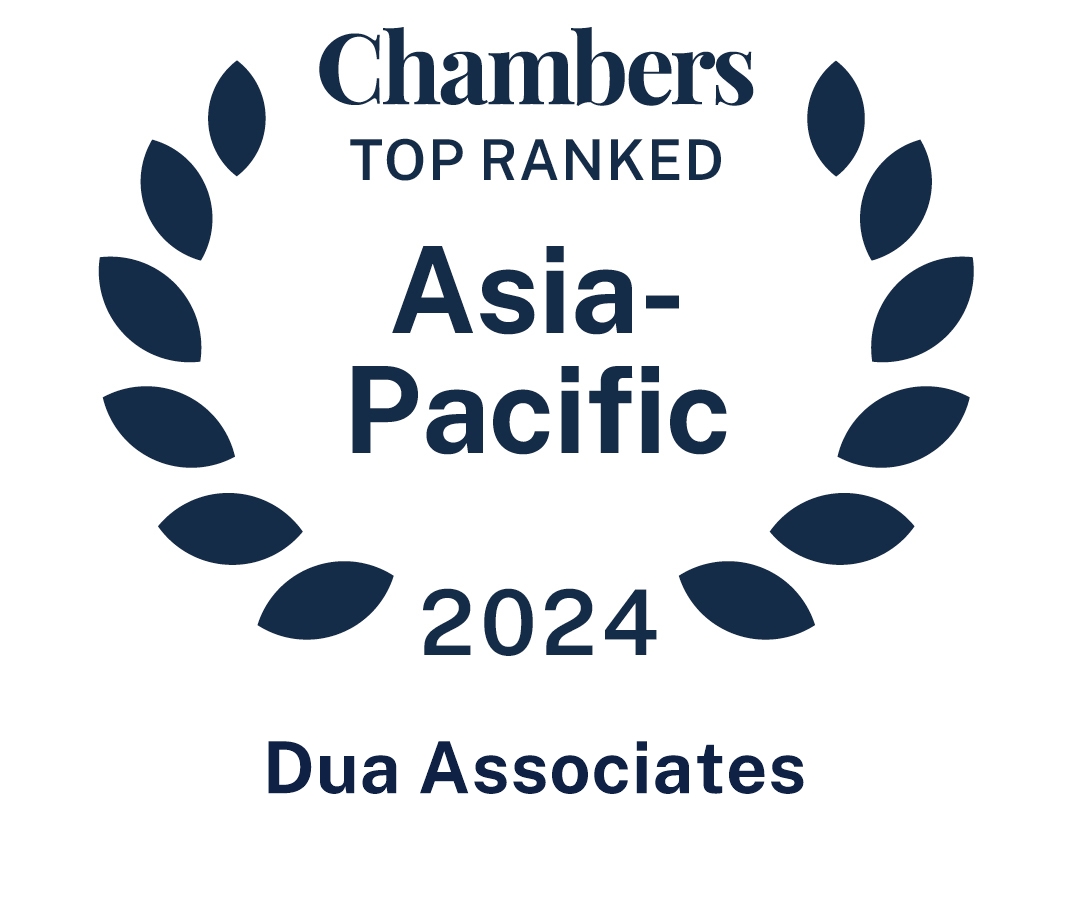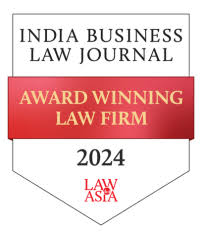 January 07, 2022
January 07, 2022
In 2021, the Supreme Court of India and High Courts rendered decisions on various aspects of arbitration law. In their line of judgment, the courts continued the pro-arbitration and minimal interference trend. Courts ruled on international commercial and domestic disputes, including the arbitrability of disputes, party autonomy, the role of courts before and during arbitration and the challenge of arbitral awards.
Towards the end of 2020, the Supreme Court in Vidya Drolia v. Durga Trading Corpn., (2021) 2 SCC 1 and Suresh Shah v. Hipad Technology (India) (P) Ltd., (2021) 1 SCC 529 overruled Himangni Enterprises (2017) 10 SCC 706. It held that landlord-tenant disputes are arbitrable with certain exceptions. Vidya Drolia propounded a four-fold test to formulate the principle of non-arbitrability and indicated that courts should only interfere at the reference stage when it is manifestly and ex facie certain that arbitration is non-existent or non-arbitrable and approach reference applications with the philosophy of “when in doubt, do refer”.
The arbitration-friendly trend of courts was seen in 2021 as well. The Supreme Court, while dealing with the question whether an emergency arbitrator under SIAC rules was vested with jurisdiction to grant an injunction, reiterated in Amazon.com NV Investment Holdings LLC v. Future Retail Ltd., 2021 SCC OnLine SC 557 the principle of party autonomy in the Arbitration and Conciliation Act, 1996 (the Act). The Court held that parties could decide to have a dispute decided under institutional rules which provide for interim orders by Emergency Arbitrators. In PASL Wind Solutions (P) Ltd. v. G.E. Power Conversion (India) (P) Ltd., (2021) 7 SCC 1, the Supreme Court once again relied on the principle of party autonomy. It held that two Indians could agree to a foreign seat of arbitration. Below are some significant rulings in 2021 by Indian Courts.
Judicial Intervention and Arbitrability of Disputes
In Bhaven Construction v. Sardar Sarovar Narmada Nigam Ltd., 2021 SCC OnLine SC 8, the court, while interpreting section 5 of the Act regarding the extent of interference by judicial authorities, referred to the UNCITRAL Model law and held that the legislature intends to minimise judicial interference and any intervention beyond what the Act prescribes will be detrimental to the arbitral process. Supreme Court reinforced this in Sanjiv Prakash v. Seema Kukreja, (2021) 9 SCC 732) by holding that interference by a court at the referral stage is limited and courts ought not to enter into a mini-trial or review facts and law which would usurp the jurisdiction of the arbitrator.
N.N. Global Mercantile Pvt Ltd v. Indo Unique Flame Ltd., (2021) 4 SCC 379 agreed with Vidya Drolia on arbitrability of disputes and the prima facie test. The court ruled that the arbitration agreement would not be rendered invalid, unenforceable or non-existent, even if the substantive contract is not admissible in evidence or cannot be acted upon on account of non-payment of stamp duty. The pro-arbitration approach of the judgment is applauded for applying the principle of separability to protect the arbitration agreement from any underlying defect which might put the validity or existence of the contract in question. Lastly, the court examined whether the fraudulent invocation of the bank guarantee is an arbitrable dispute. Answering in affirmative, the court discarding the earlier norm of allegations of fraud not being arbitrable held that the ground that it would entail voluminous and extensive evidence and would be too complicated to be decided in arbitration is misconceived as in the contemporary arbitration practice, arbitral tribunals are required to traverse through volumes of material in various kinds of disputes such as oil, natural gas and construction industry. However, the criminal aspect of fraud, forgery, or fabrication, which would be visited with penal consequences and criminal sanctions, can be adjudicated only by a court of law since it may result in a conviction, which is in the realm of public law.
Aligning with Vidya Drolia, the Delhi High Court in Hero Electric Vehicles (P) Ltd. v. Lectro E-Mobility (P) Ltd., 2021 SCC OnLine Del 1058 and Golden Tobie (P) Ltd. v. Golden Tobacco Ltd., 2021 SCC OnLine Del 3029 held that actions in rem including grant and issue of patents and registration of trademarks are exclusive matters falling within the sovereign and government functions and have erga omnes effect. However, disputes regarding the use of the registered trademark [Hero Electric Vehicles (P) Ltd.] and the assignment of trademark [Golden Tobie (P) Ltd.] are arbitrable in nature.
The narrow scope of the court’s interference while deciding applications for reference to arbitration (section 8) and appointment of arbitrators (section 11) has been reiterated by the Supreme Court in Pravin Electricals Pvt. Ltd. v. Galaxy Infra and Engineering Pvt. Ltd (2021) 5 SCC 671. The Court said that a court has to confine itself to the prima facie examination of the existence of an arbitration agreement and leave all other preliminary issues to be decided by the arbitrator.
In Shapoorji Pallonji and Co. Pvt. Ltd. v. Rattan India Power Ltd., 2021 SCC OnLine Del 3688, the Delhi Court held that a non-signatory being directly involved in the contract can be compelled to arbitrate.
Knowledge Podium Systems (P) Ltd. v. S.M. Professional Services (P) Ltd., 2021 SCC OnLine Del 136, while addressing the scope of section 8, said if there is an arbitration agreement, the court has to refer the parties to the arbitration. In Arun Srivastava v. Larsen & Toubro Ltd., 2021 SCC OnLine Del 4909, the Delhi High Court held that there is a finality to a court order allowing the application under section 8. Thus, the grounds that dispute the arbitration clause’s existence and validity have to be raised before the arbitral tribunal.
Appointment and Disqualification of Arbitrators
In Secunderabad Cantonment Board v. B. Ramachandraiah & Sons, (2021) 5 SCC 705, the Supreme Court held that although the Court may decline to make the reference to arbitration if there is not even a vestige of doubt that the claim is ex facie time-barred. In Oyo Hotels and Homes (P) Ltd. v. Rajan Tewari, 2021 SCC OnLine Del 446, the court declared the arbitrator’s appointment as non-est as the procedure to appoint the arbitrator under the contract was not followed.
The Calcutta High Court in Paul Builders Pvt. Ltd. v. Indian Statistical Institute, 2021 SCC OnLine Cal 21 reiterated the settled position of law that a person’s ineligibility to act as an arbitrator renders him ineligible also to appoint an arbitrator.
Section 12(5) of the Act renders a person ineligible to act as an arbitrator on account of the relationship with the parties, counsels, or the subject matter of the dispute falling under the categories specified in the Seventh Schedule to the Act. In Haryana Space Application Centre v. Pan India Consultants (P) Ltd., (2021) 3 SCC 103, the court held that section 12(5) read with Seventh Schedule is mandatory and non-derogable in nature. The Court observed that in the facts of the case, the Principal Secretary to the Government of Haryana would be ineligible to be appointed as an arbitrator since he would have a controlling influence on the appellant being a nodal agency of the State. Similarly, relying on the rule against bias, the court found the Chairman of the appellant ineligible in Jaipur Zila Dugdh Utpadak Sahkari Sangh Ltd. v. Ajay Sales & Suppliers, 2021 SCC OnLine SC 730.
The Delhi High Court in T.K. Engineering Consortium (P) Ltd. v. Director (Projects) RITES Ltd., 2021 SCC OnLine Del 1188, while dealing with a case when the appointing authority was not eligible to act or appoint an arbitrator on account of justifiable doubts as to his impartiality and independence, held that under such circumstances the court would have the power to appoint an independent and impartial arbitrator. Otherwise, it would frustrate the arbitration agreement as it is antithetic to the legislative policy of the Act. Thus any interpretation which annuls an arbitration agreement should be circumvented.
Interim Measures
The Delhi High Court in L&T Finance Limited v. Dm South India Hospitality Private Limited, ARB. A. (COMM.) 14/2020 held that an arbitral tribunal under section 17 does not determine the lis between the parties. It is not required or even expected to embark on a detailed analysis of the clauses of the contract or their true construction and import. It acts, essentially, on equity. It will be hazardous for an arbitral tribunal exercising jurisdiction under section 17 to embark on a detailed analysis of the contract’s clauses. It will amount to a pre-trial determination of the issues in controversy. The arbitral tribunal has to bear in mind the considerations of the existence of a prima facie case, the balance of convenience, and the possibility of irreparable loss or prejudice to one or the other party, were interim protection to be, or not to be, granted.
The interplay between interim measures by courts (section 9) and interim measures by the arbitral tribunal (section 17) has been considered by the Supreme Court in ArcelorMittal Nippon Steel (India) Ltd. v. Essar Bulk Terminal Ltd., 2021 SCC OnLine SC 718, observed that the term “entertain” in section 9(3) refers to the court taking up the matter for consideration. The question before the court is to see whether the court has applied its mind to some extent before the constitution of the arbitral tribunal. If it has, the question of examining whether the remedy under section 17 is efficacious does not arise.
The distinction between an interim award under section 31(6) and an interim order under section 17(1)(ii)(e) of the Act was dealt with in Union of India v. Gee Kay Engineering Industries, 2021 SCC OnLine J&K 678 by observing that an interim award can be made if the arbitral tribunal is satisfied with respect to an issue for which no further evidence shall be necessary at the stage of trial whereas the arbitral tribunal has to consider the prima facie case, the balance of convenience test and take into consideration other factors as well while passing an interim order.
In Amazon.com NV Investment Holdings LLC (supra), the Supreme Court observed that party autonomy is one of the pillars of arbitration in the Act. The parties have the autonomy to decide the rules with which they shall be governed within case any dispute emerges, which shall also include the power of the Emergency Arbitrator to grant interim reliefs to the parties. Thus, it was held that an Emergency Arbitrator’s order, like an order of an arbitral tribunal, would be covered by section 17(1) and enforceable under section 17(2). In furtherance of the same, the court held that no appeal lies under section 37 of the Act against an order of enforcement of an Emergency Arbitrator’s order made under section 17(2) of the Act.
Challenge to Award and Appeal
Section 34 of the Act provides recourse to a court against an arbitral award. In NHAI v. M. Hakeem, (2021) 9 SCC 1 Supreme Court relying on the UNCITRAL Model law reiterated the well-established position that section 34 cannot be held to include within it a power to modify an award. In Bhaven Construction (supra), the court observed that the Act provides for a mechanism of challenge under section 34, which lays down the procedure and is a complete code. The established position of law on the grounds of challenge to arbitral awards was reiterated in the cases of PSA SICAL Terminals (P) Ltd. v. V.O. Chidambranar Port Trust, 2021 SCC OnLine SC 508, wherein the Supreme Court observed that the court under section 34 could not act as an appellate court and re-appreciate the evidence.
In Union of India v. Annavaram Concrete Pvt. Ltd., 2021 SCC OnLine Del 4211, the Delhi High Court held that so long as the view taken by an arbitrator is a possible view based on facts, it is irrelevant whether the court would or would not have taken the same view on the merits of the matter. In Delhi Airport Metro Express (P) Ltd. v. DMRC, 2021 SCC OnLine SC 695, Supreme Court held that the award would conflict with the public policy of India only when it is induced or affected by fraud or corruption or is in violation of confidentiality or misuse of conciliation/settlement proceedings under the Act, if it is in contravention with the fundamental policy of Indian law or if it is in conflict with the most basic notions of morality or justice.
The Kerala High Court has, in V.M. Mathew v. National Highway Authority of India, 2021 SCC OnLine Ker 387, held that an award of the arbitrator could be challenged on the grounds in section 34 of the Act, and it cannot be set aside merely because compensation awarded is insufficient. In Oriental Structural Engineers (P) Ltd. v. State of Kerala, (2021) 6 SCC 150, the court held that an arbitral tribunal’s award of interest to a party in a contract (under whose terms the rate of ‘payment of interest is not expressly provided for) is valid unless the contract specifically excludes it. Such an award of interest by a tribunal cannot be subject to judicial interference on the ground of ‘patent illegality.
Clarifying what is an “arbitral award” under sections 34 and 36 in Dakshin Haryana Bijli Vitran Nigam Ltd. v. Navigant Technologies Pvt. Ltd., (2021) 7 SCC 657, the Supreme Court held it is the decision passed by the majority members of the arbitral tribunal. The law contemplates only one date on which the arbitral award is made, namely the date on which the parties have been delivered the signed copy of the award.
In SAIL v. Jaldhi Overseas PTE Ltd. (JOPL), 2021 SCC OnLine Del 2642, parties executed two contracts: a Charter Party and a Contract of Affreightment. Although no dispute had arisen concerning the Charter Party, SAIL had withheld the admitted balance amount payable to JOPL under the Charter party because it had raised a claim of damages against JOPL regarding the Contract of Affreightment. The Arbitral Tribunal ruled in favour of JOPL and against SAIL as it found that the Charter Party was unconnected with the Contract of Affreightment. JOPL being an entity incorporated in Singapore, the arbitration between the parties was an international commercial arbitration within the meaning of Section 2(1)(f) of the Act. It was observed that if an impugned award is an award arising out of international commercial arbitration, then it cannot be assailed on the ground of patent illegality as contained in section 34 of the Act.
Section 37 of the Act provides the statutory right of appeal against orders of court and orders of arbitral tribunals. The scope of an appeal was considered in Punjab State Civil Supplies Corporation Ltd. v. Ramesh Kumar and Company, 2021 SCC OnLine SC 1056, where the court held that the jurisdiction in a first appeal arising out of a decree in a civil suit is distinct from the jurisdiction of the High Court under section 37 of the Act arising from the disposal of a petition challenging an arbitral award under section 34 of the Act. In Chintels India Ltd. v. Bhayana Builders Pvt. Ltd., (2021) 4 SCC 602, the court held that an appeal under section 37 of the Act could be filed against an order refusing to condone the delay in applying to court under section 34 of the Act.
Limitation
In BSNL v. Nortel Network India Pvt. Ltd., (2021) 5 SCC 738, the Supreme Court considered that since no limitation period has been prescribed under section 11 for the appointment of an arbitrator, relying on the residual provision Article 137 of the Limitation Act, 1963 shall be three years done factoring in section 43 of the Act which states the application of the Limitation Act, 1963 to arbitrations as it applies to proceedings in court The Court indicated that section 11 may be amended as the limitation period of 3 years is an unduly long period for applying to a court under section 11 for appointment of an arbitrator.
In Chintels India Ltd. (supra), the court reiterated the limitation period for an application under section 34 is 120 days and delay beyond such period cannot be condoned as section 5 of the Limitation Act, which enables condonation of delay and extension of the period of limitation if sufficient cause is shown, has no application to section 34 of the Act. Considering the “effect test”, the court reiterated the position that the order refusing to condone the delay in filing the claim petition has the effect of finally disposing of the original petition. Such an order can, therefore, be treated as an award and hence it is appealable.
The Supreme Court in Government of Maharashtra v. Borse Brothers Engineers and Contractors Pvt. Ltd., (2021) 6 SCC 460 said that section 5 of the Limitation Act would apply to appeals filed under section 37. However, the term ‘sufficient cause’ is not elastic enough to cover long delays, and delay cannot be condoned merely because sufficient cause is made out. Thus, only if the period of delay is short, sufficient cause is made out, appellants’ actions are bonafide, and no prejudice is caused to the other party delay can be condoned.
In Silpi Industries v. Kerala State Road Transport Corporation, 2021 SCC OnLine SC 439, the court held Limitation Act, 1963 to apply to arbitration proceedings under section 18(3) of the Micro, Small and Medium Enterprises Development Act, 2006.
Miscellaneous
In P. Mohanraj v. Shah Brother Ispat Pvt. Ltd., (2021) 6 SCC 258, it was held that a proceeding under section 34 of the Act is covered by section 14 of the Insolvency and Bankruptcy Code, 2016, providing for a moratorium on all proceedings after the commencement of the corporate insolvency resolution process, as it is undoubtedly a proceeding against the corporate debtor which may result is an arbitral award against the corporate debtor being upheld, as a result of which, monies would then be payable by the corporate debtor.
In TATA Consultancy Services Ltd. v. S.K. Wheels Pvt. Ltd., 2021 SCC OnLine SC 1113, the court observed that the existence of an arbitration clause does not oust the National Company Law Tribunal’s jurisdiction subject to the contingency that the disputes are related to insolvency.
Invoking Writ Jurisdiction
In Bhaven Construction (supra), the court observed that a party must show exceptional circumstance or ‘bad faith’ by another party to invoke writ jurisdiction.
Section 20, Place of Arbitration
S.P. Singla Constructions (P) Ltd. v. Construction and Design Services, Uttar Pradesh Jal Nigam, 2021 SCC OnLine Del 4454, held that if the arbitration agreement provides thatindicates arbitration proceedings would be anchored at such venue. Therefore, the choice of venue is also a choice of the seat of arbitration. Furthermore, in Supinder Kour v. MDN Edify Education Pvt. Ltd., 2021 SCC OnLine J&K 594, it was opined that if a contract specifies the jurisdiction of the court at a particular place, only such court will have the jurisdiction to deal with the matter and jurisdiction of all other courts shall be excluded. And in Aniket Sa Investments LLC v. Janapriya Engineers Syndicate (P) Ltd., 2021 SCC OnLine Bom 919, it was held that where a provision in the agreement conferred exclusive jurisdiction on one place and another provision separately provided for a seat of arbitration in another place and the agreement provides that the first provision is subject to the second provision. The courts would have jurisdiction to entertain the section 9 application at the latter place.
SECTION 31(7), PAYMENT OF INTEREST
In Oriental Structural Engineers (P) Ltd. (supra) and Garg Builders v. Bharat Heavy Electricals Ltd., 2021 SCC OnLine SC 855, the court observed that if the contract contains a specific clause that expressly bars payment of interest, then it is not open for the arbitrator to grant pendente lite interest.
PART II, ENFORCEMENT OF CERTAIN FOREIGN AWARDS
In PASL Wind Solutions (P) Ltd. (supra), wherein dispute arose between two Indian parties. preliminary objection to the seat of arbitration was raised before the arbitral tribunal, and the tribunal ruled that the seat of the arbitration is Zurich, Switzerland. The same argument was posited before the Supreme Court. The Supreme Court relied on the principle of party autonomy coupled with the fact that Indian law does not prohibit two India-domiciled parties from choosing a foreign seat of arbitration. The Supreme Court said that in such instances, the arbitral award issued would be regarded as a foreign award enforceable under Part II of the Act. Even if their arbitration is held outside of India, the court further ruled that two Indian parties are entitled to interim relief from Indian courts to support their arbitration.
FOREIGN ARBITRATION AWARD ENFORCEABLE AGAINST NON-SIGNATORIES TO AGREEMENT
In another landmark judgment of Gemini Bay Transcription (P) Ltd. v. Integrated Sales Service Ltd., 2021 SCC OnLine SC 572, a Representation Agreement was entered into between Integrated Sales and the company DMC, one of which is a company registered in Hong Kong. The agreement contained an arbitration clause according to which disputes were to be referred to a single arbitrator in Kansas City, Missouri, USA. In its statement of claim, Integrated Sales arrayed Gemini Bay as a respondent. The arbitrator ruled in favour of Integrated Sales. At the enforcement stage of enforcing the foreign arbitral award, a single judge of the Bombay High Court held that the arbitral award was enforceable only against DMC and not against Gemini Bay as they were non-signatories to the arbitration agreement. In appeal, a Division Bench of the High Court reversed the judgment of the Single Judge. The proceedings were challenged in the Supreme Court, which held that a foreign arbitral award is enforceable against non-signatories to the arbitration agreement. The Supreme Court reiterated that grounds for resisting a foreign arbitral award are to be narrowly construed and that a non-signatory's objection cannot possibly fit into section 48(1)(a) of the Act. A foreign arbitral award cannot be challenged on grounds of "perversity". Incidental to the main issue, it was also held that section 44 recognises the fact that tort claims may be decided by an arbitrator, provided they are disputes that arise in connection with the subject agreement.
CONCLUSION
The pro-arbitration trend of the courts is evident from the above. In Delhi Airport Metro Express (P) Ltd. (supra) Supreme Court remarked that there is a disturbing tendency of courts setting aside arbitral awards, after dissecting and reassessing factual aspects of the cases to conclude that the award needs intervention, and thereafter, dubbing the award to be vitiated by either perversity or patent illegality, apart from the other grounds available for annulment of the award. The court relying on UNCITRAL Model law said that one of the principal objectives of the 1996 Act is to minimize the supervisory role of courts in the arbitral process and the tendency to dissect and reassess awards would lead to corrosion of the object of the 1996 Act and the endeavours made to preserve this object, which is minimal judicial interference with arbitral awards. In Amazon, the Courts recognised interim orders of an Emergency Arbitrator under SIAC Rules, and in PASL Wind Solutions, the Supreme Court relying on the New York Convention held that two Indians could agree to a foreign seat of arbitration. In Gemini Bay Transcription (P) Ltd., the Supreme Court refused to interfere in the execution of a foreign arbitral award. Further, Chief Justice Ramana, who is one of the authors of Vidya Drolia, has more often than not stressed the significance of arbitration, mediation, and conciliation before approaching the courts. In 2020 despite the pandemic, LCIA and SIAC recorded their highest caseloads ever. SIAC recorded an increase from 479 new cases in 2019 to 1080 new cases in 2020, of which Indian parties were represented in 690 cases. ICSID has registered and administered the highest number of cases in its financial year 2021. Seeing global trends coupled with the pro-arbitration trend of the courts, it looks like 2022 will be a busier year for arbitration practitioners.
Note : This article was first published in Livelaw.in








